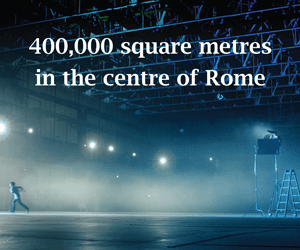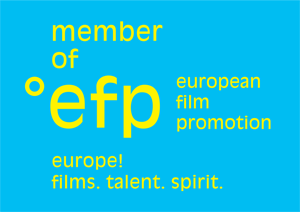The profession of arms (Film) (Il mestiere delle armi)
by Ermanno Olmi
original title:
Il mestiere delle armi
directed by:
cast:
Christo Jivkov, Sergio Grammatico, Dessy Tenekedijeva, Sandra Ceccarelli, Sasa Vulicevic, Fabio Giubbani, Aldo Toscano, Dimitar Ratchkov, Maurizio Zacchigna, Michele Zattara, Paolo Magagna, Giancarlo Belelli, Nikolaus Moras, Paolo Roversi, Claudio Tombini, Franco Palmieri , Vittorio Corcelli, Francesca Lonardelli
screenplay:
cinematography:
editing:
set design:
costume design:
music:
production:
Cinemaundici, Rai Cinema, StudioCanal, KirchMedia (Munich)
distribution:
world sales:
country:
Italy
year:
2000
film run:
105'
format:
colour
release date:
11/05/2001
festivals & awards:
- Rome Film Fest 2019: Restored Films
- Turin Film Festival 2018: Lunga vita a Ermanno Olmi!
- Mumbai International Film Festival 2012: Celebration of Italian Cinema
- FebioFest 2005: Tribute to Ermanno Olmi
- International Film Festival of Guadalajara 2004: Panorama
- Shanghai International Film Festival 2004: Special Tribute
- Italian Film Festival of Venezuela 2003: Panorama
- Mostra Internazionale del Nuovo Cinema - Pesaro 2003
- David di Donatello 2002: Best Film, Best Director, Best Screenplay, Best Costumes, Best Music, Best Cinematography, Best Set Design, Best Producer, Best Editor
- IFFR - International Film Festival Rotterdam 2002: Out of Competition
- Open Roads: New Italian Cinema 2002: Panorama
- EFA - European Film Awards 2001: Nonimation for European Director, European Cinematographer
- Festival de Cannes 2001: in Competition
- Festival do Rio 2001: Panorama
- Stockholm International Film Festival 2001: Section: E.F.A.
- TIFF - Toronto International Film Festival 2001: Masters
"Today, November 24, 1526, Captain Joanni de' Medici and his men overtook the German mercenaries, the Lanschenets, before they could cross the Po river, and assaulted them so violently that they inflicted grave losses on the enemy."
The Germans, under the command of General Zorzo Frundsberg, have swarmed into Italy with 15,000 foot soldiers, but they possess no artillery. Joanni de' Medici, captain of the feared Black Bands, is famed as a great leader in battle and an expert in the use of weapons. He is in the pay of Pope Clement VII.
Marquis Federico Gonzaga, though officially on the Pope's side, in reality is playing a double game and giving maximum aid to the Lanschenet armies. At the same time, Alfonso d'Este, the duke of Ferrara, gives in to the tempting offer of Charles V, the German emperor, and to show his gratitude secretly furnishes General Frundsberg's officers with several pieces of artillery: four small cannons mounted on wheels. Hidden in a barge laden with salt, the four deadly weapons are transported towards Mantua.
Joanni learns the news that Frundsberg and his army, with Marquis Federico's agreement, are about to set up camp near Mantua. He at once takes off in pursuit of the enemy, determined to corner Frundsberg and engage him in battle. Joanni leads his Bands in a surprise attack against the enemy, who disperses into the overgrown swampland. After a second furious skirmish, marked by the continual changes in strategy that Joanni is famous for, the enemy beats a fast, disorderly retreat.
On the field, during pauses in the battle, Joanni is overcome with nostalgic thoughts and memories of loved ones.
The Germans hide their four cannons behind the ruins of an old brick-kiln and wait for Joanni and his Bands to fall into their trap. Following the hoofprints which the enemy deliberately leaves on the freshly fallen snow, Joanni once more sets off after Frundsberg. When he reaches the brick-kiln he finds the German soldiers already lined up, waiting for him. General Frundsberg sits on his horse dangling his infamous golden rope, from which he intends to hang the Pope. After a violent battle, Joanni orders his men to retreat. But no sooner has he turned his horse around than a deafening boom drowns out the noise of shouting and clashing metal. Joanni is so surprised to find the Germans have artillery that he slows his horse. When he starts riding again, a fourth cannon shot hits him in the right leg.
Carried to Mantua, Joanni undergoes the amputation of his leg. His slow death agony begins, the death of a valiant youth.
"The illustrious Joanni de' Medici, captain in the army of His Holiness Pope Clement VII, after an illness lasting four days, has died from a fever, after being wounded in the leg by an artillery shot in Mantua. The last day of November, 1526."
Spurred by the premature death of Joanni de' Medici, illustrious captains and princes of state issued an edict that the deadly firearms be banned from battle, nevermore to be used against man.






